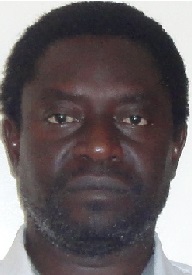DEPARTMENT OF COMPUTATIONAL SCIENCES AND ENGINEERING
Dr WINSTON OJENGE
ACADEMIC TEAM LEADER (ATL)
Office: Block N Room 001
Contact: ojenge@tukenya.ac.ke
Department of Computational Sciences and Engineering
The Department of Computational Sciences and Engineering focuses on modeling of engineering and scientific problems using computers. This is similar to scientific computing research and training but with an emphasis on practical skills and solving real life engineering and basic sciences problems. Areas covered here include modeling electrical, mechanical, civil and geospatial engineering problems that would otherwise be more expensive to experiment as real artifacts. In science, problems related to biological processes, chemical processes, etc. are used as teaching examples. The learners are expected to have interest/experiences in engineering/science.
Computational Science and Engineering is concerned with the application of computer techniques in the solution of engineering and scientific problems. It is focused on the development and application of computational models and simulations to solve complex physical problems arising in Engineering as well as in natural phenomena (natural sciences). It integrates the disciplines of computer science, mathematics, engineering and science. Computational Science and Engineering enables an alternative approach to carrying out large scale engineering and scientific experimentation through the use of techniques such as modeling, simulation and optimization. Research and teaching in this department sits at the intersection of computer science and applied mathematics focusing on theory, techniques and tools for modeling and simulation of complex systems; parallel programming and collaborative software development; numerical methods and scientific computing; and engineering principles for innovation and product development. Computer simulation delivers high quality results for numerous questions and problems in science and engineering, medicine, economics and the life sciences. This is especially important (especially in a developing country like Kenya) in fields that are either inaccessible to traditional experimentation or where carrying out traditional empirical inquiries is prohibitively expensive.
Scientific Computing will focus on application of computing knowledge for mathematical modelling, optimisation and numerical simulation of real-life processes in nature and engineering with a practical (skills development) orientation and taking a greater emphasis on industry-related problems that provide two things: the raw data for simulation and sought after optimized results. Scientific computing may be considered as a subset of the broader area of Computational Science and Engineering.
Data Science and Analytics will focus on theories, techniques, tools, approaches and related competencies that enable obtaining answers from massive datasets. By incorporating computer science, predictive analytics, statistics, and machine learning to the data sets that are being generated from diverse sources in the society, the department will equip the graduates with skills for Business Intelligence and big data analytics tasks. It is expected that the department will in this regard participate in the generation of the data, aggregation and hosting of diverse data sets (from across sectors and industries) and participate in contract research for insights to the industry (including development of automated data analytics systems).
